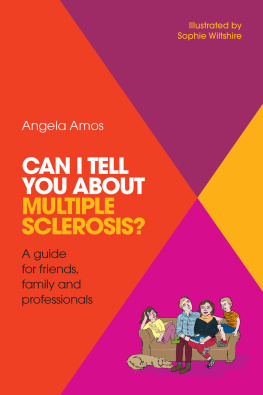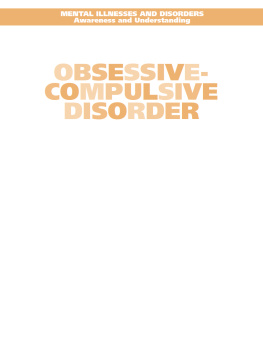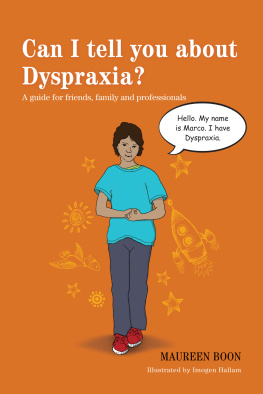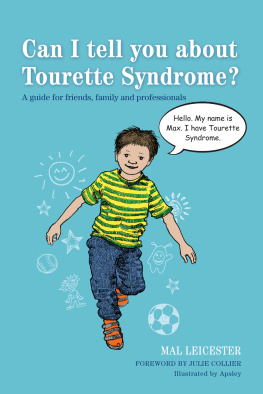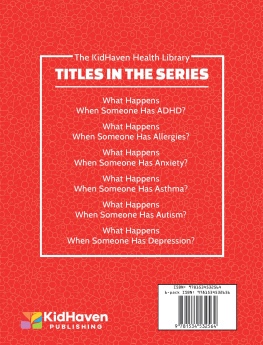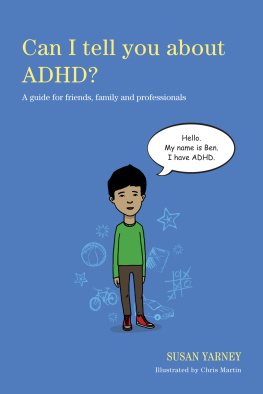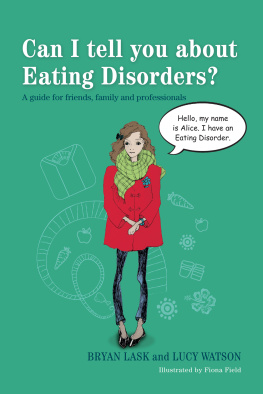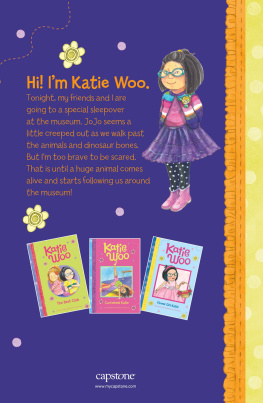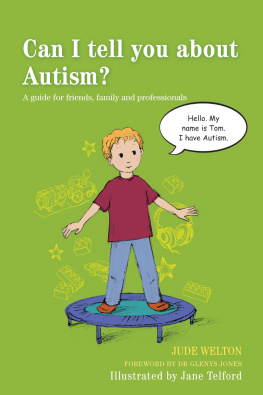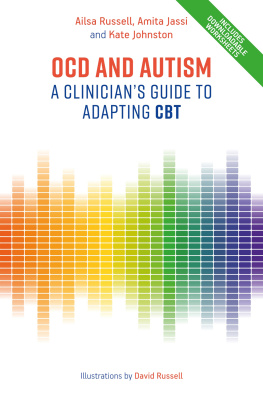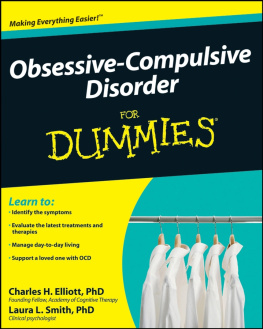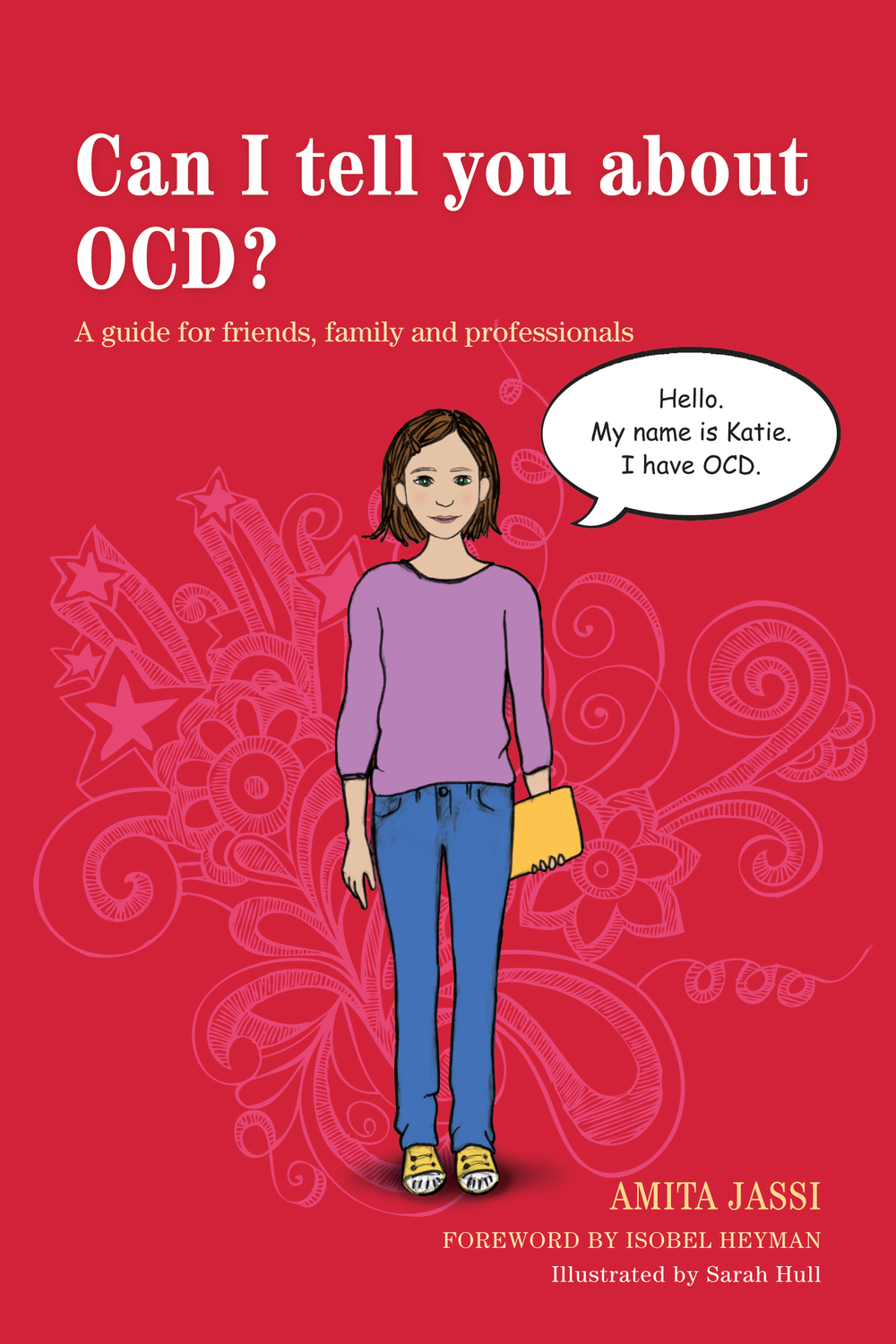
Can I tell you about OCD?
Can I tell you about...?
The Can I tell you about...? series offers simple introductions to a range of limiting conditions. Friendly characters invite readers to learn about their experiences of living with a particular condition and how they would like to be helped and supported. These books serve as excellent starting points for family and classroom discussions.
Other subjects covered in the Can I tell you about? series
ADHD
Asperger Syndrome
Asthma
Dementia
Dyslexia
Epilepsy
Parkinsons Disease
Selective Mutism
Stuttering/Stammering
Can I tell you about OCD?
A guide for friends, family and professionals
Amita Jassi
Foreword by Isobel Heyman
Illustrated by Sarah Hull
Jessica Kingsley Publishers
London and Philadelphia
First published in 2013
by Jessica Kingsley Publishers
116 Pentonville Road
London N1 9JB, UK
and
400 Market Street, Suite 400
Philadelphia, PA 19106, USA
www.jkp.com
Copyright Amita Jassi 2013
Foreword copyright Isobel Heyman 2013
Illustrations copyright Sarah Hull 2013
All rights reserved. No part of this publication may be reproduced in any material form (including photocopying or storing it in any medium by electronic means and whether or not transiently or incidentally to some other use of this publication) without the written permission of the copyright owner except in accordance with the provisions of the Copyright, Designs and Patents Act 1988 or under the terms of a licence issued by the Copyright Licensing Agency Ltd, Saffron House, 610 Kirby Street, London EC1N 8TS. Applications for the copyright owners written permission to reproduce any part of this publication should be addressed to the publisher.
Warning: The doing of an unauthorised act in relation to a copyright work may result in both a civil claim for damages and criminal prosecution.
Library of Congress Cataloging in Publication Data
Jassi, Amita.
Can I tell you about OCD? : a guide for friends, family, and professionals / Amita Jassi ; foreword by
Isobel Heyman ; illustrated by Sarah Hull.
pages cm.
Audience: 7+
Includes bibliographical references and index.
ISBN 978-1-84905-381-5 (alk. paper)
1. Obsessive-compulsive disorder in children--Juvenile literature. I. Hull, Sarah (Illustrator), illustrator.
II. Title. III. Title: Can I tell you about obsessive-compulsive disorder?
RJ506.O25J37 2013
616.8522700835--dc23
2012051512
British Library Cataloguing in Publication Data
A CIP catalogue record for this book is available from the British Library
ISBN 978 1 84905 381 5
eISBN 978 0 85700 736 0
Printed and bound in Great Britain
Contents
Foreword
This little book fills an important gap in the current literature available for children and teenagers with obsessive compulsive disorder. It really tackles in a clear and accessible way one of the most distressing and less well-understood aspects of OCD: unpleasant obsessions.
Awareness of OCD in young people has increased in the last decade, and there has been encouraging expansion of psychological treatments, specifically cognitive behaviour therapy (CBT) incorporating exposure with response prevention. But the type of OCD which is most represented in books for children, or in films and on television, features the common symptoms such as fears of germs and dirt, with compulsions of repeated washing.
This book breaks new ground by dealing with one of the less well-known features of OCD: intrusive distressing obsessions.
Many young people are haunted by distressing obsessions, in particular unwanted thoughts on unpleasant or taboo themes. These can include fears of harm coming to themselves or others, worries that they may hurt others, unwanted or unpleasant sexual thoughts, and thoughts that offend their religious beliefs.
This book will help young people who know someone with OCD to better understand what their friend or family member may be going through, and it can be used by parents, teachers and other professionals to increase their own understanding, as well as the understanding of the children in their care. It will also help children with these types of symptoms realise that this is just another common manifestation of OCD...and that it can be treated in just the same way. And, even more importantly,...they are not alone. Many children with these distressing thoughts think they are uniquely strange or bad, and do not realise that this is a well-recognised OCD symptom.
There is a common belief that OCD which is dominated by unpleasant obsessions rather than the more usual compulsions, such as washing or checking, is very difficult to treat with CBT. Dr Jassi helps dispel this myth but showing that the same techniques of teaching a child to identify unpleasant thoughts and face them, while resisting rituals or avoidance, really does work.
Dr Jassi has ten years of clinical and research experience in working with people with OCD, and her practical and common sense approach leads children gently to recovery. This book will not only be a great relief to young people and their friends and families, who are trying to understand and deal with obsession, but also to therapists.
Dr Isobel Heyman MBBS PhD FRCPsych
Honorary Consultant Psychiatrist to the National OCD Service for Young People, Maudsley Hospital London, and Consultant Psychiatrist, Great Ormond Street Hospital for Children
Acknowledgements
I would like to thank the many friends, family and colleagues who have helped me over the years to get me to the place of being able to write this book; there are too many people to mention, but you know who you are.
Thank you to all my colleagues and friends at the National Specialist Young Persons OCD Clinic at the Maudsley Hospital. In particular, Faye Barrow, Jacinda Cadman, Isobel Heyman and Georgina Krebs, who read manuscripts of the book and gave invaluable feedback and ideas. Thanks, Isobel, for asking me to write the book in the first place!
I wish to thank all the young people and families who I have had contact with over the years in the clinic. You have all have inspired me in many different ways and have shown strength and courage in fighting OCD. Thank you to Jonathan Davies and Claudia Semadeni who read the book and gave helpful feedback.
Finally, I would like to acknowledge the ongoing support, encouragement and love given by my parents and my brothers, Ammit and Anil. Thank you for always being there.
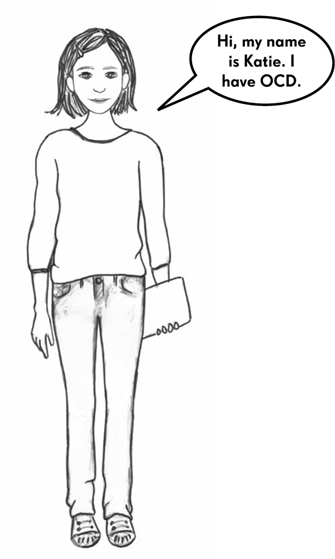
Hi my name is Katie and I am 13 years old. OCD wanted me to keep it a secret, but I would like to tell you about my OCD.
O CD is an anxiety disorder thats really common in people around my age; about 1 or 2 in every 100 people have OCD. That means in my school, there are probably 1020 people with it, not just me! I dont know who they are; I guess its not always obvious who has OCD. Anyone can get it; boys, girls and people from anywhere in the world can have it.
OCD stands for obsessive compulsive disorder. I get thoughts and pictures popping into my head over and over again, which make me feel scared, worried and sometimes embarrassed. I also sometimes get urges to do things even though I dont really want to do them. These are called obsessions. OCD makes me feel like I have to do something to stop the obsessions coming true or to get rid of the anxiety. The things I have to do for OCD are called compulsions. Obsessions and compulsions can get in the way of the things I want to do. OCD affects people in different ways, they might get different thoughts to me, or have different things which OCD makes them do, but its still called OCD.
Next page

